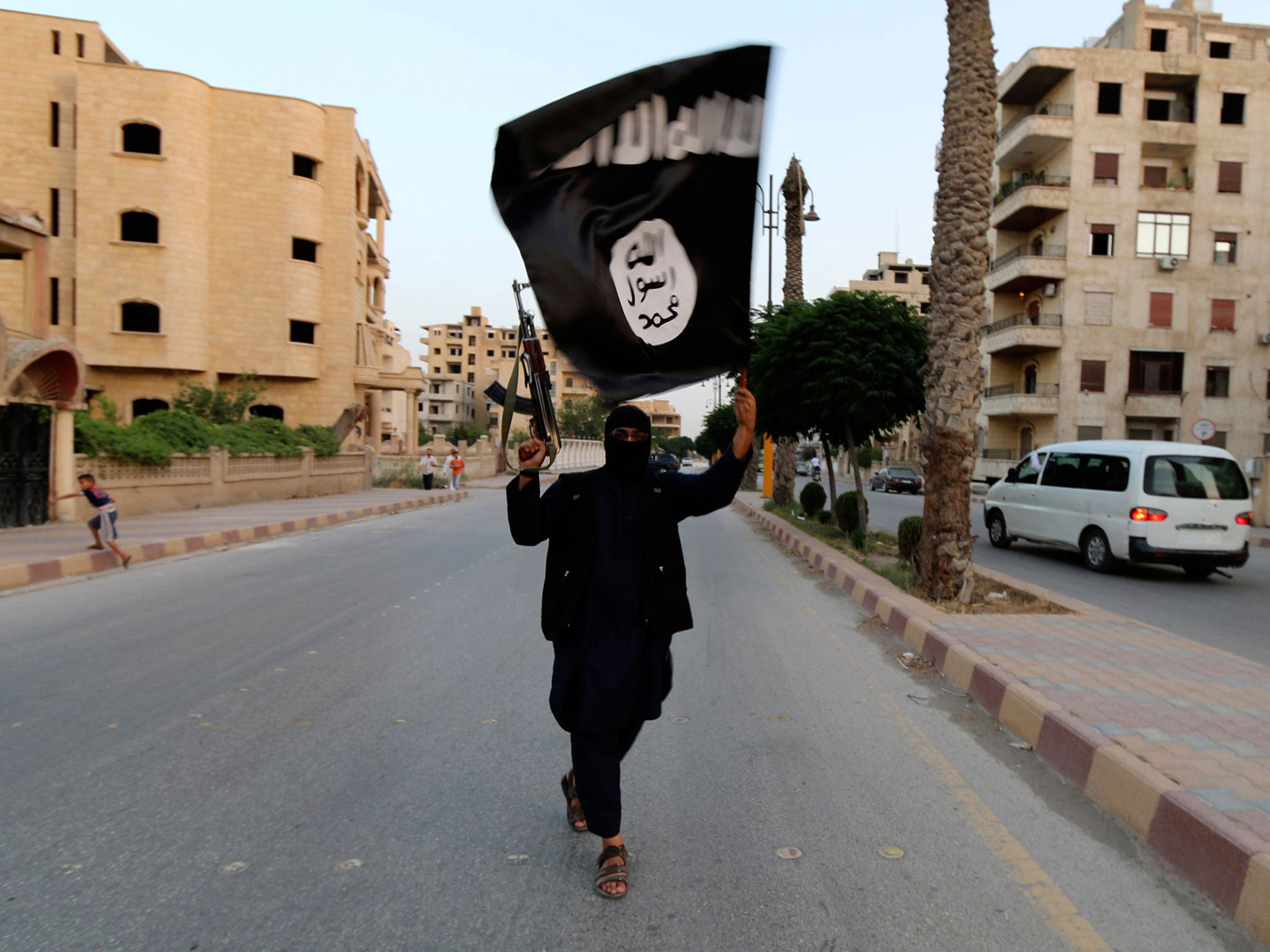From the inside, Isis looks less like a terrorist group and more like a greedy, entitled bunch of racists
A few weeks ago a prominent British Isis fighter wrote online that Europeans should stick together because “associating with Arabs can be quite annoying and stressful”

There is a great irony where Isis is concerned. While the group claim to be creating a new society in which race and nationality don’t matter (as long as you agree with the Isis party line) – we know that the truth is actually very different.
A first-hand account from Abu Ibrahim al-Raqqawi, an activist in Raqqa, confirmed to me that “jihadis from other countries tend to stick in groups by nationality or language – the British together, the Dutch together – and they don’t have much to do with ordinary people here.” They’re even treated differently depending on where they fit in Isis’ racial hierarchy. North Africans have reported being paid less. Western recruits complain they are left to do washing up. Indians they are made to scrub toilets. A few weeks ago a prominent British Isis fighter wrote online that Europeans should stick together because “associating with Arabs can be quite annoying and stressful”. This attitude of casual prejudice seems endemic.
I am fortunate to have avoided any direct contact with Isis during my time as a doctor in the country, but know of charity workers who have suffered because of their actions. While the regime and its militias have blocked aid access, Isis has also interrupted delivery of aid to the Syrian people. They have interfered with agreements with local community leaders, tried to take over warehouses belonging to charities, and made it almost impossible for aid agencies to operate. We know, of course, that they have also murdered aid workers.
I have heard first-hand accounts of how Isis subjugates Syrians in places like Raqqa, looting their resources and living lavishly while civilians go hungry. No thought is given to providing the basic services people need to survive. Civilians are regularly denied water, electricity, and proper sanitation in the areas Isis controls. Ordinary Syrians are treated with contempt. They are no better than the Syrian regime and its militia in their treatment of the Syrian people.
At the very bottom of Isis’ hierarchy are the Syrians themselves, who having already suffered so much under the Syrian regime, are enduring the most hostile and cruel foreign occupation imaginable, under Isis’ rule. It is Syrians who are having their heritage, their resources and homes stolen from them and shared between Isis terrorists. Even the international aid sent to help them in their darkest hours is stolen.
I am a British Syrian. In these past terrible few years, I have returned to Syria many times, as a doctor, to help the Syrian people. What they have suffered is beyond belief. War has torn families apart. It has brought hunger and disease. It has left hundreds of thousands dead and millions displaced. The economy barely functions, so the means of earning a daily living has also all but disappeared and families are provided for through basic bartering. The United Nations has stated that four in every five Syrians are now living in poverty. Much of the country’s infrastructure is in tatters.
Our country may be in ruins, but it is still our country. It remains our Syria, despite the efforts of the Assad regime and its militias, including Hezbollah, which work openly to destroy the spirit of its people. And it remains our Syria despite the claims of Abu Bakr al-Baghdadi, the leader of Isis (known in the region as Da’esh), their self-declared ‘Caliph’. This man, who has compounded the misery of Syrians, has even sought to deny us our identity. He has claimed “Syria is not for Syrians,” and has imposed the rule of foreign gangs on the areas of north and eastern Syria that Isis currently controls.
The impact of this conflict with the addition of Isis has been appalling on the Syrian people. They have brought murder, rape through forced marriages, hunger, disease and hypocrisy. They would even deny us our right to be Syrians. It pains me to see the humiliation that this conflict and Isis are heaping on the Syrian people. But in Raqqa, as elsewhere, Syrians believe that brighter days are to come, and continue to assert themselves despite the violence they see in this conflict, and through small but significant acts of resistance to Isis. It is why I remain proud to say: “I am a Syrian.” One day, these small acts of resistance will add up to something much, much greater.
Join our commenting forum
Join thought-provoking conversations, follow other Independent readers and see their replies
Comments
Bookmark popover
Removed from bookmarks